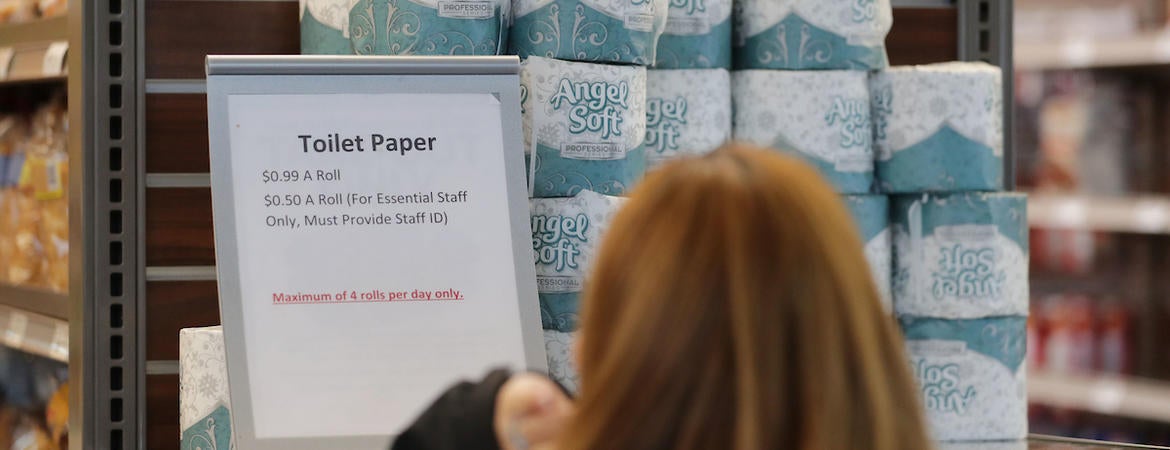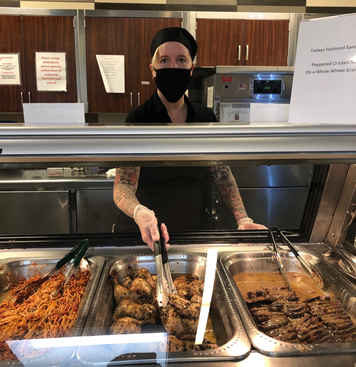Shopping for essential supplies in the current environment can be difficult, especially for essential workers like those who continue to work on UC Riverside’s campus.
That’s why UCR’s Housing, Dining, and Hospitality Services department is ensuring staff members are protected at work and can get the goods they need at home.
The Market at Glen Mor sells several staples such as milk, bread, meat, and toilet paper, at discount prices to all essential UCR employees.
The department has some critical staff working on-site to provide services for students who remain in campus housing. The Market at Glen Mor is the only dining facility still open on campus, though it operates on a limited schedule.
Robin Hungerford, senior director of Dining and Hospitality Services, said some employees may not have time to go shopping for such supplies that have been hard to find at some stores. The discount is a way to show appreciation for their work and give them one less thing to worry about, she said.
The department has managed to keep the market well stocked, and the university has found ways to be resourceful in obtaining harder-to-find items.
For instance, Matt Burke, an analyst with procurement services who works with Housing, Dining and Hospitality Services, learned last week that an Orange County distillery had turned to producing hand sanitizer to keep its business afloat with bars and restaurants now shut down.
After reaching out to the company, Blinking Own Distillery, Hungerford and David Henry, executive director of Housing, Dining, and Hospitality Services, quickly got into a van and drove to Santa Ana to purchase its supply of 1,000 bottles of hand sanitizer.
Those are now among the items for sale at cost to employees at the Market at Glen Mor.
The department also moved quickly to meet the new campus guideline to provide face coverings for on-site employees following recommendations last week by the Riverside County Public Health Officer and the Centers for Disease Control and Prevention.
During that same Orange County trip, Burke contacted an apparel company in Brea that had started making face masks. Hungerford and Henry picked up 300 three-ply cotton masks and provided each employee with two masks, ensuring the department was fully complying with the new advisory by Sunday.
“This continues to be an interesting journey, but we are committed to the health and welfare of our essential staff on campus,” Hungerford said. “We’ll do whatever it takes.”






